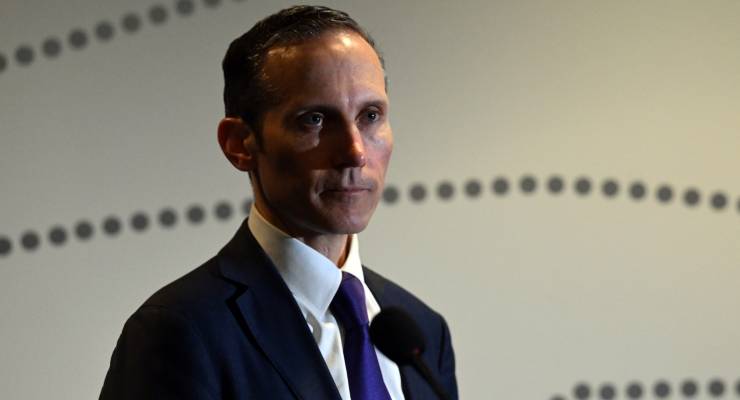
The first fruits of Labor’s competition taskforce, which was established last year, have emerged and confirm that Australia has a competition law problem.
In a speech today, Assistant Minister for Competition Andrew Leigh has revealed some early research produced by the new group within Treasury commissioned by Treasurer Jim Chalmers to advise on competition law reform.
Data developed in collaboration with the Reserve Bank and the Australian National University shows that the Australian Competition and Consumer Commission is missing the bulk of mergers, with 1,000-1,500 mergers on average occurring a year from the mid-2000s to 2018, but the ACCC considered an average of only 330 mergers each year.
That leaves a credibility gap of 60-70% of mergers untouched under current laws. The consultation paper issued by the taskforce has already proposed ways to ensure the ACCC vets more mergers.
While the level of ACCC-notified mergers has stayed relatively steady over the past 15 years, the data show there has been a consistent rise in the annual number of mergers since 2008, with 2018 being the highest year in a decade.
The frenzy of missed mergers might not be a problem if they were between small or medium companies, but the data shows just 1% of firms make half of all acquisitions. And that happens in consumer-facing sectors that are likely to have direct impacts on competition for Australians: retail, professional services, and health and social services, as well as manufacturing.
And the target firms are much more likely to have some form of intellectual property than average firms, suggesting very large firms are trying to buy innovation they can’t or won’t produce themselves.
The taskforce also has research that cuts directly across the government’s willingness to protect gouging monopolist Qantas from competition: having a competitor on an aviation route sees a marked fall in airfares for that route, and having two competitors sees airfares halved.
The data seems to suggest that all the fears of those who have been warning of declining competition are true: competition laws are too weak; the level of concentration in the Australian economy is growing; dominant firms are the ones doing the acquiring, and they’re trying to buy innovation, suggesting bigger firms are struggling to generate that themselves — with consequences for Australia’s level of productivity growth.
Genuine reform of competition laws and the power of the ACCC can’t come soon enough.








Large Australian businesses have been coasting with the help of wage suppression and low levels of competition, which is one reason for slow improvements in productivity. But the likes of Innes Willox prefer to lobby to cut the minimum wage rather than address the fundamental structural reasons for low productivity. Suppressing wages contributes to poor productivity, reducing the need for businesses to innovate. I would like to see Willox and others who are shameless enough to lobby for making the working poor poorer live off under $50,000 a year with no assets.
But Peter Costello told us this would INCREASE competition!
Surely it couldn’t be that the economic rationalists didn’t really know what they were talking about, and were more interested in feathering their nests?
But of course. Australia actually largely has an anti-competition policy. It’s connected to our no or low productivity settings, our encouragement and support for rent-seeking and the general soft corruption of revolving doors for politicians and sundry mates. All very Latin America. Thank goodness for all those rocks and gases we stole from the First Nations eh?
Sorry Bernard, but you are “flogging a dead horse”. This capitalist system is out of control. If you don’t believe me, let me refer you to an excellent article written by Bernard Keane in today’s edition of Crikey. There is a plethora of evidence in addition to the points made in this excellent article to support what I am saying.
This article ends with the expressed desire that:
“Genuine reform of competition laws and the power of the ACCC can’t come soon enough.”
I am sorry Bernard but this is nothing more than a fanciful dream. Don’t hold your breath waiting for that to happen. Which political party do you see coming to power that would have the guts to effect such a reform? And why would I say that? Simply because the capitalist class holds all the trump cards at the moment and they will not relinquish any advantage that they have without a major political and economic upheaval. The so-called ‘Labor Party’ now works on their behalf. I tend to think that there will not even be the prospect for significant change unless or until there is a major economic collapse of global capitalism. And then I think that the concern will be about more than just “reform of competition laws”.
Finally Bernard, despite my differences with you on this particular issue, I would like to add that I still have tremendous respect for your point of view overall.
Bernard has always been the bosses’ boy – ever willing to perform for crumbs from the Big Table.
https://www.balancedeconomy.net/about-us/
Yet more evidence against libertarian ideology, which holds that unregulated capitalism leads to a) incentive-stimulating competition, and b) innovation…
A downside of actually stimulating competition among aviation companies, and the consequent reduced cost of fares, would be more flights, and more carbon emissions. https://pure.buas.nl/ws/portalfiles/portal/27136592/Peeters_Papp_EnvisionTourism_report.pdf
But government could then levy a flight tax and spend the money on renewable tech or, god forbid, convincing Aussies that it is possible to consume less and still be happy?